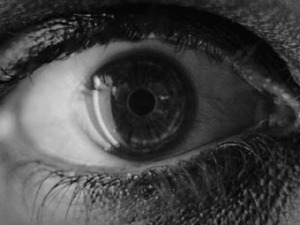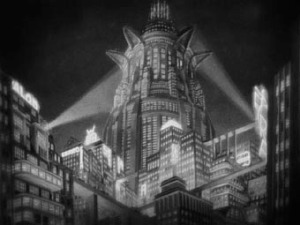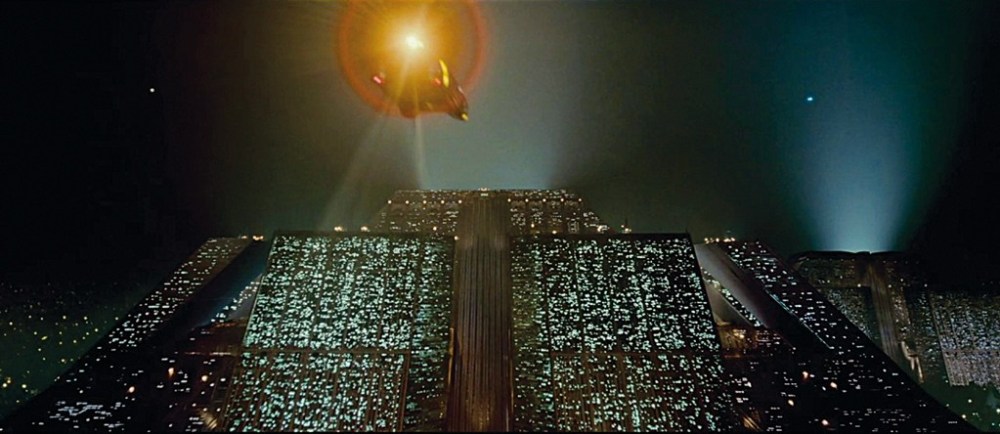RE:View- Blade Runner

Blade Runner is a film I hold in considerable affection and yet it is not a great movie. Some argue not even a good movie, but they’re wrong and they’re bad, and here’s why.
It is an extraordinarily influential film.
Everyone knows that it has problems. It’s just that it’s hard for anyone to agree on what they are.
The trouble is that each of the major cuts is an obvious failure, each in its own special way.
For instance; in the original theatrical version, you have a bad narration that was inserted post-production. It felt awkward and tacked on because it was both (more on that later). Later cuts remove the narration but insert a heavy-handed and fairly major plot change that wasn’t even hinted at in the original version of the film.
There are other worries as well, for one thing, there was no chemistry between the leads which is understandable because Harrison Ford and Sean Young hated each other. And then there is Harrison Ford’s weird little bit of performance art in the strippers’ dressing room. Seriously, what was that pervy nerd thing about? Where did that come from and why did he do it? It reeks of the kind of thing where the director is having the actor do a scene a thousand different ways and Scott went with the worst one. The exposition scene between Deckard and his boss was dumb, Deckard was the best Blade Runner out there, and he didn’t know replicants only have a four-year lifespan? Seriously?
I could go on but you probably have a list of your own.
Its strengths are equally well-known. The stunning visuals set a film school standard. The Eighties techno soundtrack fit perfectly. The art design was revolutionary, (even if a lot of it was based on German surrealism of the 1920s). The secondary, concurrent storyline with Roy Batty is clearly the film’s greatest strength. It builds in intensity while it leads up to his confrontation with Deckard and the famous Tears in the Rain soliloquy. Much of which was improvised by Rutger Hauer himself.
Blade Runner has a lot of good and plenty of bad but how did it all get there?
It’s time for a quick history lesson. Alan Ladd Jr briefly became a Hollywood wunderkind in the late 70s by dint of two decisions, first, he green-lit Star Wars, then fought tooth and nail for it when the studio wanted to shut down the production due to overruns. Next, he followed that one up with the lighting in a bottle, Alien. With two big wins under his belt, he decided to hang out his own shingle. He left Fox and started the Ladd Company.
Science fiction had not done well at the box office before 1977 but Ladd had seen the future and it was… well… The future. Science fiction was the reason for his success. Sadly the butcher’s bill came due with Blade Runner. Ladd okayed a script treatment for Do Androids Dream of Electric Sheep. It was clearly going to need a better title* but a SciFi noir premise had real potential. Ladd knew he had a handful with Ridley Scott but the results so far had been correspondingly rewarding.
Scott works in visuals, and Blade Runner’s visuals are the best thing in this movie. However, they are NOT all that original. A lot this film’s imagery is owed to another film with strong cinematography, a weak storyline, and an evil robot. Friz Lang’s Metropolis (1927).


There are other shots that are pretty similar but you get the drift. The 1920s German surrealist school clearly inspired the imagery. Scott also hired Syd Mead to do the production design and Mead is strongly influenced by Metal Hurlant’s artwork (Heavy Metal magazine in the US). Cyber Punk was warming up in the batter’s box and Willam Gibson had already started writing short stories in his universe but Neuromancer wouldn’t be published for another two years. The influence on Gibson is obvious, Blade Runner kick started the cyberpunk movement.
Anyway, production proceeded. A working print was delivered. Troubles began.
The film confused the hell out of the test audiences. So a decision to insert first-person narration was made and that decision is more defensible than a lot of people think. First-person narration in a noir detective story has a long tradition going back to Phillip Marlowe. But you have to build the script around that narration from the start and they obviously didn’t. The scripting for the narration was clunky and heavy-handed. The worst examples were Deckard “explaining” why Roy Batty hadn’t killed him, which almost but didn’t quite ruin the “tears in the rain,” scene. There was Rachel suddenly having an unlimited life expectancy (except it turns out she didn’t). A major issue with the narration was the fact that Harrison Ford deliberately did a shitty job with his read. Neither he nor Scott had agreed with the decision to add the voice over and Ford was hoping that his performance was so bad that they wouldn’t use it.
They did.
When the film was released it tanked at the box office. Mainstream critics didn’t like it because it made them think that is always painful for stupid people.
Production cost: 28 million.
Box office take: 27 million.
That’s a bomb. It slunk out of the theaters and began a march towards obscurity.
And then it was released on this new fangled thing called videotape. It still didn’t make a lot of money for the producers because in those days a video of a film would cost $50 to buy, in today’s money that is about $125.00. So most of us just rented. However, Blade Runner couldn’t stay on the shelves at the video rental stores. Science Fiction fans all got around to seeing it, eventually. They discussed Blade Runner with each other at length, had arguments about its influence on Cyber Punk. More Gen Xers saw it in college dorms than we did in the theater. It started being shown in film schools. Then it began to inspire other works. Akira in particular owes a lot to it. For that matter, just about all 1990s anime owes it something. In short, Blade Runner became a classic.
And then the real troubles with it began.
Ridley Scott is very good at making his works difficult to defend. The stuff that comes out of his mouth wasn’t what you had in mind when you were being amazed by his visuals.
There was a fan theory that cropped up; Deckard himself was a replicant. Now this seemed like a pretty stupid fanboy theory for a shitload of reasons. It was inconsistent within the story. The other replicants beat the shit out of him constantly. There were no hints that he had any doubt at all that he was human and this was in a fucking Phillip K. Dick story. Bottomline: If Deckard was a replicant it drastically undermined the entire story.
Roy Batty was reaching for his humanity and found it at the end. That only worked as a juxtaposition if Rick Deckard was a human who had lost his humanity and was trying to regain it.
Problem. Scott decided he loved the idea and he proceeded to George Lucas the fuck out of Blade Runner by inserting that stupid unicorn scene.
Nobody involved in any aspect of the production thought that Deckard was a replicant including Scott himself, (at the time). Not the screenwriters. Certainly not Harrison Ford, he’s very clear on that subject. He feels the Deckard-Replicant thing undermines his performance.
Although Ridley Scott wasn’t saying anything about it at the time, he is saying a lot now. And what he is saying is damn near grounds for a mental competency hearing.
“Oh, it was always my thesis theory. It was one or two people who were relevant were… I can’t remember if Hampton agreed with me or not. But I remember someone had said, “Well, isn’t it corny?” I said, “Listen, I’ll be the best f#@king judge of that. I’m the director, okay?” So, and that, you learn — you know, by then I’m 44, so I’m no f#@king chicken. I’m a very experienced director from commercials and The Duellists and Alien. So, I’m able to, you know, answer that with confidence at the time, and say, “You know, back off, it’s what it’s gonna be.” Harrison, he was never — I don’t remember, actually. I think Harrison was going, “Uh, I don’t know about that.” I said, “But you have to be, because Gaff, who leaves a trail of origami everywhere, will leave you a little piece of origami at the end of the movie to say, ‘I’ve been here, I left her alive, and I can’t resist letting you know what’s in your most private thoughts when you get drunk is a f#@king unicorn!’” Right? So, I love Beavis and Butthead, so what should follow that is “Duh.” So now it will be revealed [in the sequel], one way or the other.”
Yes, that was really Ridley Scott.
So aside from visuals, why watch it? Two words, Rutger Hauer.
Harrison Ford wasn’t really bad in this one. His character was just understated compared to Indiana Jones and Han Solo. He wanted to show that he had more as an actor than just tough guy charisma. So he toned it down a lot and it was appropriate for a cynical, broken man like Rick Deckard.
But there is no denying that Hauer’s performance as Roy Batty is the real draw here. It’s why anyone still watches this film today. He created this compelling character that clearly wasn’t quite human but he almost was. Roy’s motivation was as simple as anyone’s can be. He just wanted more than the four years of life he had been given. He probably knew all along, that it was a hopeless quest. He was smarter than the men who had made him. He knew what the fundamental issues with his design were. What Roy really wanted was to confront his creator and demand to know, why did you make me like this?
And he was unhappy with the answer he got.
At the climax, when Roy is toying with Deckard, he isn’t being sadistic. He just wants the man who killed all his loved ones to feel what he feels. To know what it’s like to be hunted. At the end, he saves Deckard in order to save himself.
Now we reach the most important question of a RE:View.
Does it hold up?
Well, provided you have managed your expectations, yes.
The practical effects combined with the striking visuals create a timeless environment. Sure Blade Runner is fundamentally flawed and it doesn’t seem to matter how many times it goes back into the oven, it’s just never going to be cooked all the way through. But that said, it’s still a movie that screams 1980s cyberpunk in a way that nothing from that beloved decade can.
It’s still worth a look.
Okay, I’m done here.
* In case you are wondering the title came from a William S. Burroughs treatment of an Alan E. Nourse novel that no one has read for nearly half a century. They bought the film rights just to use the title. A warning to authors everywhere.




